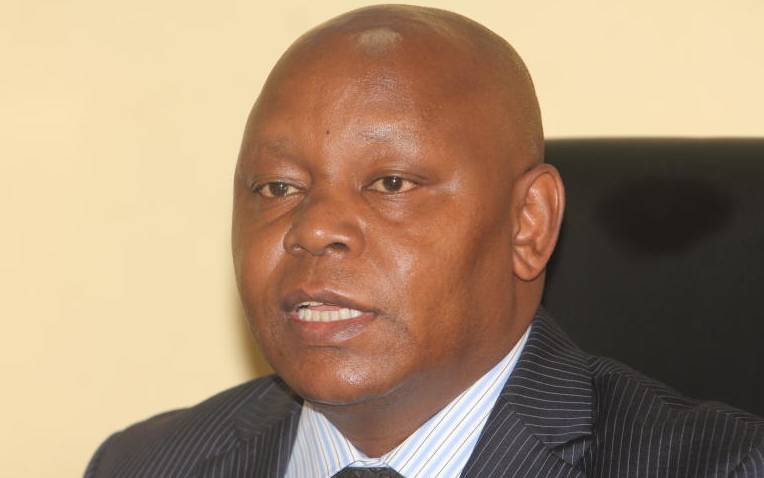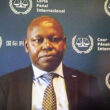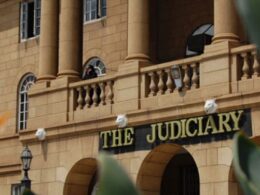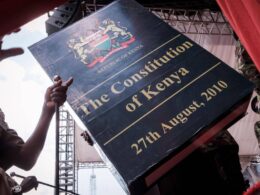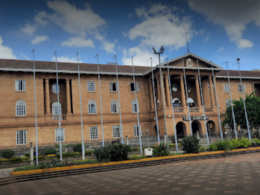By Susan Kendi
The decision delivered on Paul Gicheru’s case has triggered discourse and prompted speculations on what impact it might have on Deputy President’s candidacy in the 2022 elections and his case before the International Criminal Court, in which the ICC vacated his charges.
Trending at number two in Kenya on Monday, July 26, 2021, Kenyans discussed Gicheru’s case and its implications on the main case, the case against Kenya’s Deputy’s President William Ruto and former journalist Joshua Sang.
These are some of the reasons why Paul Gicheru’s case has arisen discourses in Kenya.
1) His time of surrender
Paul Gicheru surrendered himself to the Dutch authorities on November 2, 2020, five years after the ICC issued an arrest warrant against him and his co-suspect, Philip Kipkoech Bett. The arrest warrant was issued in March 2015.
2) Linkage to the Ruto and Sang Case
The decision delivered in Paul Gicheru’s case on July 15, 2021, by theSingle Judge, Reine Adélaïde Sophie Alapini-Gansou, revealed that there is evidence showing that Gicheru bribed, intimidated or threatened eight prosecution witnesses in the case against Kenya’s Deputy’s President, William Ruto and former journalist Joshua Sang.
In a 2-1 judgment, Trial Chamber V(a) decided in April 2016 to terminate the charges against Ruto and Sang after the prosecution had closed their case but before Ruto and Sang presented their defence. The judges said one reason they did this was because the prosecution evidence had deteriorated due to interference with witnesses, and it was not possible to determine the innocence or guilt of Ruto and Sang. However, it was determined that the case might be reopened if there is adequate evidence against Ruto and Sang.
The linkage has led to a discourse on whether Paul Gicheru’s trial might lead to reopening the case. However, this is speculative since Gicheru charges are on witness tampering, and the case against Ruto and Sang were on crimes against humanity.
3) Kenya’s High Court Judgement
On April 1, 2015, the Cabinet Secretary, Ministry of Interior and Coordination of National Government of the Republic of Kenya received a joint request from the International Criminal Court (ICC) for the arrest and surrender of Lawyer Paul Gicheru and his co-suspect Philip Kipkoech Bett.
In a decision delivered by the High Court of Kenya on November 16, 2017, Judge Luka Kimaru dismissed the application filed by the Republic of Kenya as part of its mandate to cooperate with the International Criminal Court, stating that it lacked merit.
“The warrant of arrest issued by this Court (the International Criminal Court) against the Respondents(Paul Gicheru and Philip Kipkoech Bett) is hereby lifted. For the avoidance of doubt, the Applicant(The Republic of Kenya) shall not take any action in furtherance to the request made for the surrender of the Respondents, unless and until there is compliance with the orders of this Court. It is so ordered,” said Judge Kimaru.
However, despite this decision that challenged the arrest warrant issued by the ICC against Gicheru and Bett, Gicheru has surrendered himself to the Court, raising more questions, despite him clearly stating that his surrender was voluntary, at his own expense, and without threat or coercion.
4) The political nature of the case
On August 9, 2022, Kenya will hold its next general elections, and the Deputy President, William Ruto, is one of the presidential candidates.
On Twitter, many Kenyans speculated on how the opening of Paul Gicheru’s case might impact his candidature and the case that is partially closed due to lack of enough evidence.
5) Former Ruto’s Lawyer
The International Criminal Court (ICC) Prosecutor Karim Khan, Fatou Bensouda’s successor, recused himself from leading the case facing Kenyan lawyer Paul Gicheru according to article 42(7) of the Rome Statute. Deputy Prosecutor James Stewart will be handling the case.
Article 42(7) states that a prosecutor or his deputy may be disqualified from a case if “they have previously been involved in any capacity in that case before the Court or in a related criminal case at the national level involving the person being investigated or prosecuted.”
Karim Khan was Ruto’s Defence Lawyer in the 2017 post-election violence case in the Court.
However, despite recusing himself, this has been a topic of contention.
[1] https://www.icc-cpi.int/Pages/record.aspx?docNo=ICC-01/09-01/15-1-Red





